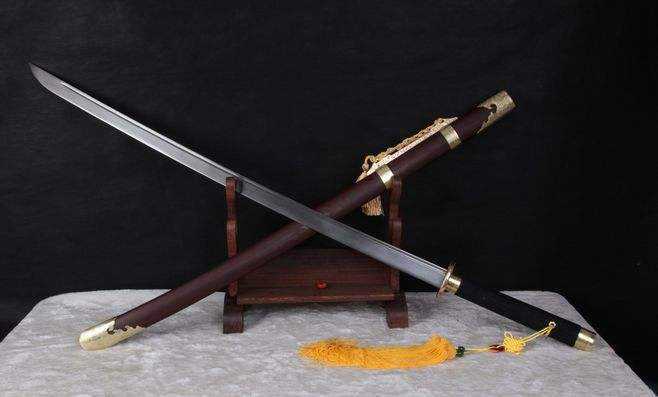From adrenaline-fueled adventures that come with eye-watering price tags to refined tastes that demand the finest and most exclusive experiences, these hobbies transport their participants into a world of opulence and fascination. In this article, we embark on a captivating journey to explore the 10 Most Expensive Hobbies in the World, where passion and affluence intertwine to create truly unforgettable leisure pursuits.
10 Most Expensive Hobbies In The World
Collecting Rare Art and Antiques

Collecting Rare Art and Antiques is the most expensive hobby in the world. High-quality and rare artworks and antiques can command astronomical prices at auctions, rendering this hobby incredibly expensive. Coveted by wealthy collectors worldwide, these valuable pieces carry historical and cultural significance, adding to their allure.
The pursuit of Renaissance masterpieces, ancient artifacts, and unique treasures can result in multi-million-dollar investments. Beyond the initial purchase, maintaining and preserving these items entails substantial costs in storage, restoration, and insurance. Nevertheless, for those with a passion for art and an appreciation for the extraordinary, the prestige and potential returns make this an exclusive and captivating pursuit.
Flying Private Jets

Flying Private Jets is the 2nd most expensive hobby in the world. Owning and maintaining a private jet is one of the most extravagant hobbies, with costs related to the aircraft, fuel, maintenance, and crew. The initial purchase of a private jet can run into tens of millions or more, while fuel expenses are substantial due to jet fuel’s high cost. Regular maintenance and crew salaries add to the overall expenses.
Additionally, hangar fees, insurance, and compliance with aviation regulations are considerable ongoing costs. Despite the exorbitant expenses, the allure of luxury, convenience, and privacy continues to attract affluent individuals and corporations to this exclusive and opulent hobby.
Collecting Luxury Cars

Collecting Luxury Cars is the 3rd most expensive hobby in the world. Acquiring and maintaining a collection of luxury and exotic cars can be an expensive passion. Owning high-end vehicles from prestigious brands can cost millions, and some rare or limited-edition models fetch astronomical prices at auctions. The initial purchase is just the beginning, as regular maintenance, insurance, and storage expenses are substantial. Customizations, upgrades, and exclusive accessories can add further to the cost.
Despite the significant financial investment, the thrill of owning these iconic and high-performance automobiles, the admiration from fellow enthusiasts, and the potential for appreciation in value continue to drive this extravagant and exhilarating hobby.
Horse Racing

Horse Racing is the 4th most expensive hobby in the world. Participating in horse racing as an owner can incur substantial costs. Buying high-quality racehorses, especially those with proven track records or promising bloodlines, can be a significant initial investment. The expenses continue with training fees, stabling, veterinary care, and nutrition, all vital for the horses’ performance and well-being.
Entering races also involves entry fees and additional costs related to transportation and accommodations for the horse and the team. The pursuit of glory on the racetrack demands substantial financial commitment, making horse racing a passionate yet costly endeavor for owners seeking success in this prestigious and competitive sport.
Yacht Ownership

Yacht Ownership is the 5th most expensive hobby in the world. Owning and maintaining a luxury yacht involves significant expenses. The initial purchase cost of a high-quality yacht can be in the millions or even hundreds of millions of dollars, depending on its size and features. Beyond the purchase, there are ongoing costs for crew salaries, as yachts require skilled professionals to operate and maintain them.
Fuel expenses can be substantial, especially for larger yachts that consume significant amounts of fuel during voyages. Regular maintenance and repairs to ensure the yacht’s safety and performance add to the overall expenses. Despite the high costs, yacht ownership provides the allure of luxury, privacy, and freedom for those who can afford this extravagant and exclusive lifestyle.
Sailing Competitions

Sailing Competitions is the 6th most expensive hobby in the world. Engaging in sailing competitions can be a costly hobby due to the expenses associated with high-end sailboats and prestigious events. Acquiring a top-of-the-line sailboat, designed for performance, can involve significant upfront costs. These sailboats often require ongoing maintenance, repairs, and upgrades to stay competitive.
Additionally, entry fees for prestigious regattas can be substantial, and travel expenses to reach these events add to the overall cost. Despite the expenses, the thrill of competing on the open water, the camaraderie among fellow sailors, and the pursuit of excellence in this exhilarating sport continue to attract sailing enthusiasts who are willing to invest in this challenging and rewarding hobby.
Skydiving

Skydiving is the 7th most expensive hobby in the world. While individual skydiving experiences may not be that expensive, becoming an expert skydiver with advanced equipment and specialized training can be a pricey endeavor. Basic tandem jumps for beginners are relatively affordable, but as enthusiasts progress, the costs increase significantly.
Acquiring high-quality skydiving gear, including parachutes, altimeters, and jumpsuits, can be expensive. To reach advanced levels, skydivers invest in advanced training courses and coaching. Additionally, frequent jumps and travel to different drop zones can add to the overall expenses. Despite the costs, the adrenaline rush, the sense of freedom, and the community of thrill-seekers continue to make skydiving an exhilarating and sought-after hobby.
Golf

Golf is the 8th most expensive hobby in the world. Membership fees at exclusive golf clubs, high-quality equipment, and travel expenses to play at top courses can add up to a substantial amount. Joining prestigious golf clubs often requires a significant initiation fee and annual dues. Additionally, investing in top-of-the-line golf clubs, balls, and attire can be expensive.
Golfers who aim to play at renowned courses, both locally and internationally, face travel costs and green fees, especially for championship courses. Regular practice, coaching, and tournament participation also contribute to the overall expenses. Despite the costs, the appeal of the sport, the social aspects of club membership, and the challenge of improving one’s game keep golf enthusiasts devoted to this elegant and rewarding pastime.
Scuba Diving

Scuba Diving is the 9th most expensive hobby in the world. Frequent scuba diving in exotic locations and purchasing top-notch diving gear can make this hobby quite expensive. Owning high-quality diving equipment, including regulators, dive computers, wetsuits, and masks, entails a significant initial investment. Maintaining and servicing the gear also adds to the ongoing costs. Travel expenses, such as airfare, accommodation, and dive packages, can quickly accumulate, especially for diving in remote or renowned dive sites.
Additional costs may arise from specialty courses, certifications, and dive insurance. Despite the expenses, the allure of exploring breathtaking underwater worlds, and encountering marine life, and the thrill of diving adventures entice enthusiasts to invest in this captivating and adventurous hobby.
Wine Collecting

Wine Collecting is the 10th most expensive hobby in the world. Acquiring and storing rare and valuable wines can be a costly hobby, especially considering the ever-increasing prices of fine wines. Collectors seeking to build an impressive wine collection often invest significant amounts in purchasing coveted bottles from renowned vineyards and prestigious vintages. The value of these wines may appreciate over time, further driving up their price.
Proper storage conditions are crucial to maintaining the wines’ quality and value, necessitating the use of climate-controlled cellars or storage facilities, which can incur additional expenses. Despite the costs, the passion for wine, the joy of tasting aged vintages, and the potential for investment returns make wine collecting an enticing and refined pursuit.
Frequently Asked Questions
What is the rarest hobby?
Some hobbies that have been considered rare include collecting unique items like meteorites, antique books, or vintage cars, participating in extreme sports or adventure activities, or pursuing niche artistic endeavors like glassblowing or horology (the art of making and repairing watches).
What are the most expensive activities?
In a world of opulence and extravagance, certain pursuits stand out for their exorbitant costs. These activities cater to the world’s wealthiest individuals seeking unique and exclusive experiences. Space tourism allows private citizens to venture into the cosmos at astronomical prices. Owning luxury yachts and private jets are symbols of unparalleled luxury.
Collecting rare art and antiques, participating in motorsport racing, and engaging in equestrian sports demand substantial financial investments. Fine dining at exclusive restaurants, golfing at prestigious courses, luxury travel, and scuba diving in exotic locations also make the list. These expensive activities cater to those who seek the finest and most extraordinary indulgences life has to offer.
Is it OK to have an expensive hobby?
While some may view expensive hobbies as extravagant and unnecessary, others argue that pursuing passions and interests, regardless of the cost, brings fulfillment and happiness. Engaging in expensive hobbies can be a way to explore unique experiences, showcase creativity, or build valuable collections.
However, it is essential to strike a balance and ensure that such hobbies do not lead to financial strain or neglect of essential responsibilities. Ultimately, the acceptability of an expensive hobby lies in the context of one’s financial capacity, priorities, and personal values.
How expensive should a hobby be?
The expense of a hobby is a subjective matter and can vary greatly depending on individual circumstances, preferences, and financial capacity. There is no specific or absolute measure for how expensive a hobby should be, as it ultimately depends on what one is comfortable and willing to spend. Some people may find fulfillment in relatively inexpensive hobbies that bring joy and relaxation without straining their budget.
On the other hand, others might be passionate about hobbies that involve significant financial investments, as they value the unique experiences, opportunities, or collections these pursuits offer. The key is to strike a balance that aligns with personal interests, financial goals, and overall well-being.
Which hobby is least popular?
The least popular hobby can vary depending on factors such as cultural trends, geographic location, and individual preferences. Hobbies that require highly specialized skills, are physically demanding or have limited accessibility may be less common among the general population. However, it’s essential to remember that the popularity of hobbies can change over time, and what may be less popular today could become more widespread in the future, and vice versa.
What is the most expensive thing on earth?
The most expensive thing on Earth is the International Space Station (ISS). The ISS is a joint project involving multiple countries and represents one of the most significant achievements in space exploration and international cooperation. The cost of building and maintaining the ISS over the years has been estimated to be well over $150 billion.
However, it’s important to consider that the value and cost of various projects and assets can change over time, and new developments may emerge that could surpass the ISS in terms of expense. Additionally, some items, like priceless pieces of art or rare historical artifacts, may not have a fixed monetary value but are still considered invaluable contributions to humanity’s cultural heritage.
What is the most priceless thing in the world?
The most priceless thing in the world is often considered to be life itself. Life is invaluable, and its intrinsic worth cannot be quantified in monetary terms. The experiences, emotions, relationships, and opportunities that life offers are immeasurable and irreplaceable.
Beyond life itself, certain intangible things, such as love, happiness, health, and freedom, are also often considered priceless because they bring immeasurable joy and fulfillment to individuals and societies. While material possessions can have significant value, they pale in comparison to the priceless aspects of human existence that enrich our lives and make them meaningful.
Why are hobbies so expensive?
Hobbies can be expensive for several reasons:
1. Specialized Equipment: Some hobbies require specific and often expensive equipment, such as scuba diving gear, golf clubs, or photography equipment, which can significantly contribute to the overall cost.
2. High-Quality Materials: Certain hobbies, like art or woodworking, necessitate using premium materials, which can be costly.
3. Training and Education: Developing skills in certain hobbies may involve taking classes or receiving specialized training, which can incur expenses.
4. Travel and Exploration: Hobbies like travel, photography, or birdwatching may involve exploring new places, leading to increased travel expenses.
5. Rarity and Exclusivity: Hobbies involving rare collectibles or limited-edition items may carry higher price tags due to their scarcity.
6. Maintenance and Upkeep: Some hobbies, like owning luxury cars or boats, require ongoing maintenance and servicing, adding to the overall cost.
While hobbies can be expensive, they offer unique experiences, personal fulfillment, and growth opportunities, making them worth the investment for those who are passionate about them.
Which sport is very expensive?
Golf is often considered one of the sports that can be very expensive. While golf can be accessible and affordable at public courses, it can also become a costly pursuit for those who engage in it at more exclusive and prestigious golf clubs. Some factors contributing to the high costs of golf include:
1. Membership Fees: Joining a private golf club can involve significant initiation fees and annual dues.
2. Equipment: High-quality golf clubs, golf balls, and other gear can be expensive, especially for those seeking top-of-the-line brands.
3. Green Fees: Playing at renowned championship courses can come with substantial green fees.
4. Travel: Golfers who enjoy playing at famous courses around the world may incur travel expenses.
5. Coaching and Lessons: Seeking professional coaching or taking golf lessons can add to the overall cost.
While golf can be an expensive sport, it’s important to note that there are various levels of engagement, and many people enjoy the sport without incurring exorbitant expenses.
What is a good-paying hobby?
A good-paying hobby is one that not only brings personal fulfillment and enjoyment but also has the potential to generate income. Some hobbies have opportunities to turn a passion into a profitable venture. Here are a few examples of good-paying hobbies:
1. Photography: Skilled photographers can sell their photos as prints, stock images, or license them for commercial use.
2. Writing: Talented writers can earn money by freelancing, blogging, or self-publishing books and e-books.
3. Arts and Crafts: Creating and selling handmade crafts or artwork through online marketplaces or local art fairs can be lucrative.
4. Cooking or Baking: Passionate cooks and bakers may start catering businesses or sell homemade treats.
5. Online Content Creation: Creating YouTube videos, podcasts, or streaming on platforms like Twitch can lead to ad revenue and sponsorships.
While these hobbies have the potential for financial gain, it’s essential to remember that success often requires dedication, skill development, and consistent effort to turn a hobby into a profitable pursuit.
What hobbies are worth doing?
The worth of a hobby is subjective and varies based on individual interests, preferences, and goals. Here are some hobbies that are often considered worth doing due to the numerous benefits they can offer:
1. Exercise and Sports: Engaging in physical activities like swimming, cycling, hiking, or team sports promotes fitness, health, and social interaction.
2. Reading: Reading books, articles, or blogs enhances knowledge, vocabulary, and critical thinking.
3. Gardening: Gardening provides relaxation, a sense of accomplishment, and a connection with nature.
4. Cooking: Cooking allows creativity, improves culinary skills, and provides an opportunity to experiment with diverse cuisines.
5. Playing a Musical Instrument: Playing an instrument can boost cognitive abilities, reduce stress, and offer a creative outlet.
6. Volunteering: Volunteering helps others, fosters a sense of community, and provides a sense of purpose.
7. Art and Crafting: Engaging in art or crafting activities promotes creativity and emotional expression.
8. Meditation and Yoga: Practicing mindfulness and yoga can reduce stress, improve focus, and enhance overall well-being.
Ultimately, the worth of a hobby lies in how much enjoyment, fulfillment, and personal growth it brings to an individual’s life. It’s essential to explore various hobbies and find the ones that resonate most with your interests and values.
What hobby does not require money?
Several hobbies do not require money or can be done with minimal expenses. Here are some examples of hobbies that you can pursue without spending much:
1. Running or Jogging: Going for a run or jogging in your neighborhood or at local parks only requires a good pair of running shoes.
2. Writing: Express yourself by writing stories, and poems, or keeping a journal with just a pen and paper.
3. Drawing or Sketching: You can unleash your creativity with a simple pencil and sketchbook.
4. Hiking: Explore nature trails and enjoy the outdoors with sturdy footwear and appropriate clothing.
5. Reading: Borrow books from libraries or exchange books with friends to read without spending money.
6. Birdwatching: Observe and identify birds in your area using binoculars and a field guide.
7. Meditation: Practice mindfulness and meditation techniques for relaxation and focus without any cost.
8. DIY Crafts: Use recycled materials or items at home for various DIY craft projects.
These hobbies are not only budget-friendly but also offer opportunities for personal growth, relaxation, and enjoyment. They can be a great way to spend leisure time without breaking the bank.













